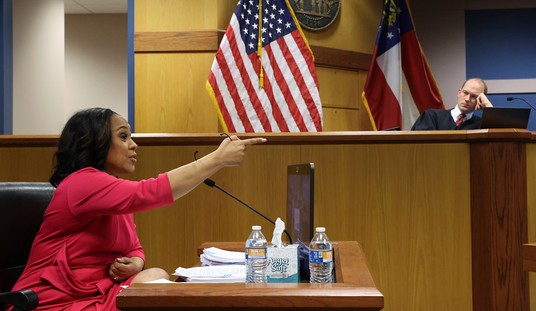In the Rashomon world of UN flim-flam, some might call it a junket, some might call it a farce, some might call it a political hit job in an election year — and they’d all have a good case. Here comes Monsieur Doudou Diene of Senegal, dispatched to America as a special investigator by the UN’s Geneva-based Human Rights Council (yes, the outfit where the delegates of China, Cuba, Saudi Arabia et al meet regularly to define human rights right down into the sewer, slam Israel, and then repair to the Mercedes and BMWs waiting to ferry them off to dinner). Diene is jetting around on a two-week tour that will — as Benny Avni reports in the NY Sun, and Nile Gardiner describes on NRO — take him to Washington, New York, Chicago, Omaha, Los Angeles, New Orleans, Miami and San Juan, Puerto Rico (we are not told whether he brought beach reading and a bathing suit).
One might hope that Doudou Diene has come here to learn about and report back on the virtues and workings of a free country — a field which for some at the UN Human Rights Council would be virgin terrain. But let’s not get ridiculous. This is the UN at work, and Diene is no de Toqueville — here he is in 2006 parading as a UN expert on “Islamophobia,” by-passing some of the most racist and repressive societies on earth in order to dwell upon the failings of democracies, and his desire for the Danes to corral their cartoons.
Diene will now be touring America to inquire into whether “racism,” as understood by the UN, figures in the presidential campaign. What does that portend? At the UN, “racism” is a code word routinely slopped around to describe almost anything American, democratic, or supportive of Israel’s democracy. We can expect that he will return from his jaunt around America with a list of observations that will duly, and publicly, shock the sensitivities of the Human Rights Council -including such members as the governments of Saudi Arabia (anyone tried setting up a church on their premises lately?), Cuba (with 49 years under the Castros, no real presidential campaigns to worry about), and the People’s Republic of China (now re-educating the monks of Tibet), etc. — as well as the commission chaired by Libya, with the help of Iran, Pakistan, Cuba & Co., now preparing for a 2009 reprise of the racist, bigoted, xenophobic and terror-friendly “Death to Israel! Death to America” conference held in 2001 in Durban, South Africa.
How thick can the UN slather it on and get away with it? Diene is coming to the U.S. on the premise that he, and the UN, know better than American voters how to judge an American election campaign. But lest the UN gang take even more offense than whatever the UN already has planned, the U.S. government is welcoming Diene (though the U.S. Ambassador to the UN, Zalmay Khalilad, did to his credit make the wistful point that there are other matters more urgently deserving of Diene’s labors). And, of course, whatever the proximate source of his funding, Diene in coming here is surfing the multi-billion dollar wave of American taxpayer money and support which the UN has come to regard as an entitlement for anything its assorted members wish to do.
I have a suggestion. If, in the UN crusade to improve us all, Doudou Diene insists on a grand U.S. tour, by all means let’s give him a look at how America works. But when he’s done, let’s do some investigating of our own — starting with a demand for the complete release, with detailed breakdown, of his travel expenses, in their entirety, including his air tickets, meals, entertainment, per diems, hotel rooms, phone calls, limousines, miscellaneous items, souvenirs either bought or donated, and any related fees, support services and staff assistance as he produces his report. Actually, how about appending all that, in full, to his report itself — or to any information that might happen to leak out as he prepares his report. After all, for this zealous public servant come to inspect us, what’s to hide? In its way, a window onto the daily expenses of the UN’s Doudou Diene might just transform his tour into a useful learning experience for the American public — though not, perhaps, the experience intended by the UN Human Rights Council.









Join the conversation as a VIP Member